Indigenous voice to parliament a chance to ‘reimagine something better for us all’
Pat Anderson and Megan Davis reflect on their extraordinary personal journeys to become allies and advocates for the Indigenous voice to parliament.
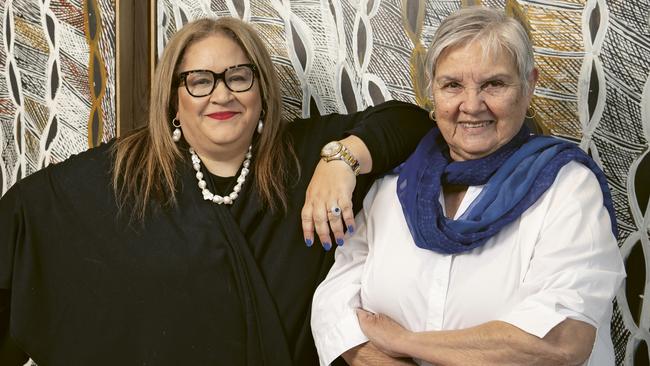
“I heard about Megan by reputation,” Anderson, 79, tells Inquirer. “She is super smart and I really admire Megan for her really powerful impact. She’s been the brains behind all of this. For Megan, this is her life’s work. She came at it from a different angle to me, but it was clear the inflexibility of the current system that we had just wasn’t working for us.”
“We ended up on the Referendum Council together and lots of people said: ‘You are going to get on really well with Pat Anderson,’ ” Davis, 47, tells Inquirer. “It happened over time. Her reputation with the community – they trust her. She has worked in so many facets of the community and I’ve never seen anyone operate a room like Aunty Pat. She is a really formidable leader.”
Anderson and Davis, along with Noel Pearson – with whom they accepted the Sydney Peace Prize last year – worked closely together through 12 regional dialogues and the Uluru National Constitutional Convention that engaged with more than 1200 Indigenous delegates and culminated in the Uluru Statement from the Heart in 2017.
In this long process, Anderson and Davis say in a joint interview, they have learnt from each other, complemented each other and forged a bond that will never be broken.
“Megan has helped me to organise my thoughts and my thinking,” Anderson says. “I have acquired an intellectual framework from which to put all of my experience and make order out of them to use them in the best way possible.”
“Pat has always had a really strong conviction about things,” Davis adds. “She doesn’t shy away from her beliefs and her values; she’s not apologetic for them. Everything is founded in an extraordinary life experience. You have to stand for something and Pat stands for something.”
The co-chairs of the Uluru Dialogue have collaborated on a new book, Our Voices From the Heart (HarperCollins), which draws on “three seminal documents” that have led us to the constitutional referendum to be held this year: the Uluru Statement from the Heart (2017), the Final Report of the Referendum Council (2017) and the Referendum Council Discussion Paper (2016).
The book begins with an account of the First Peoples’ experience on these lands for more than 60,000 years, collectively written by those who participated in the regional dialogues, which articulates the rich diversity of origins, environments and cultures, and also the shared experience of colonisation and dispossession. The journey from “invasion” to “resistance” to “mourning” and “activism” is confronting to read.
The book then explains the history of attempts, with eight official processes and 12 formal reports since 2011, to advance the cause of recognition. It articulates how the dialogues and the convention worked, the detailed reform options they considered and debated, and how the idea of a voice to parliament and government was arrived at. The concept of “agreement-making” and “truth-telling”, also part of the Uluru statement, had strong support from delegates.
It was clear from the dialogues that the Indigenous delegates wanted to use the Constitution – which they call the “Big Law” – to deliver real and lasting change.
“That is because it will stay and it will be permanent; it cannot be done away with in an afternoon, like so many other Aboriginal and Torres Strait Islander organisations,” Anderson and Davis write. This is why the voice must be enshrined in the Constitution.
The voice to parliament and government is about a simple proposition: that Aboriginal and Torres Strait Islander people should be formally recognised in the founding document of the nation, the Constitution, and a mechanism should be established to provide advice to help address the entrenched disadvantages faced by the First Australians. It is both symbolic and practical.
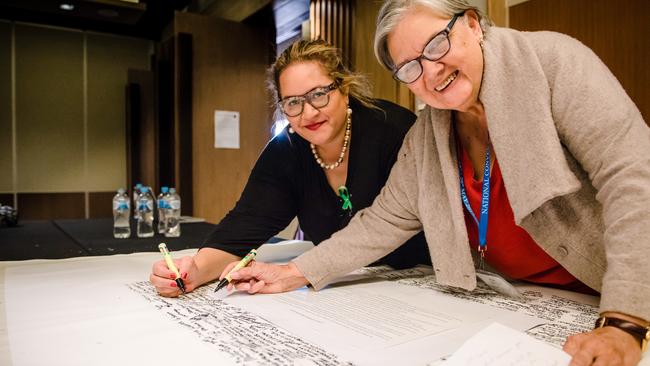
The voice would be enshrined in the Constitution, but how it is structured and how it would tender advice would be decided by the parliament and can be altered by the parliament. The parliament, elected by all Australians, remains supreme. The voice can only provide advice or be asked to provide advice, and it is up to the parliament and the government to decide whether to act on it.
In the book, Anderson and Davis explain that the word voice is a metaphor. “The word voice or voicelessness does not mean literally our people have no ‘voice’,” they write. “It is a metaphor for structural powerlessness, and the lack of structures to feed into decision-making that impacts upon communities.”
The design principles for the voice, agreed by the First Nations Referendum Working Group earlier this year, are included in the book. The voice would give advice; its members would be chosen by Indigenous communities; they would be representative of these communities with young people and gender balanced; it would be community led; accountable and transparent; work with other organisations and structures; have no program delivery function; and no veto power.
It would be, as Anderson and Davis explain, substantive, reasonable and unifying. At its core, the voice would provide advice to parliament and government on how best to close the gap on the health, education, employment, housing, justice and safety outcomes between Indigenous and non-Indigenous Australians.
The recent Productivity Commission review of the National Agreement on Closing the Gap could not be more relevant. It found a “lack of meaningful progress” in the key priority reform areas and concluded that governments are “not yet sharing power with Aboriginal and Torres Strait Islander people in a way that enables decisions to be made in genuine partnership”. It is, effectively, a case made for the voice.
“Whatever bad number you have or whatever socially determined indicator you choose, we’re always at the bottom,” Anderson and Davis write.
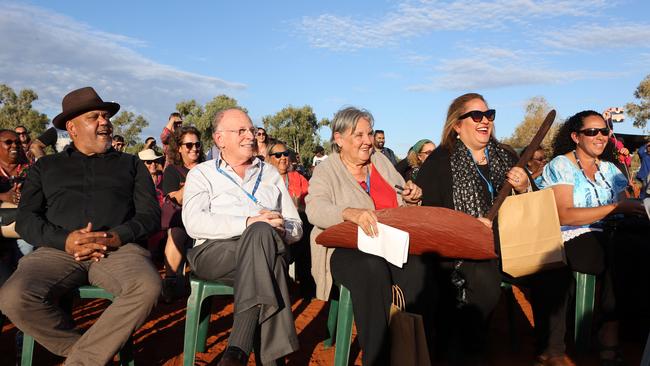
“It does not matter what it is: the most of this, the least of that. It does not matter what you are measuring, for decades and forever, since the invasion, our mob will fare the worst.”
The bleak reality of these miserable statistics is that nothing will change without changing the policymaking process and improving accountability. This is the real purpose of the voice: to improve the lives of those who are the most disadvantaged. The test of a civilised society is how it treats its most vulnerable.
“There must be structural change: not tinkering at the edges, not a memorandum of understanding, not mere legislation,” Anderson and Davis argue. “We should be included in the life of the nation and have a say about policies, decisions and laws that affect us. This is not a big ask. Because we really do not have anywhere else to go.”
The personal journeys of both of these extraordinary women, who have dedicated their lives to public service, have shaped their approaches to constitutional recognition. It is grounded in both personal experiences of disadvantage, discrimination and racism coupled with close-up involvement with governments in the policymaking process.
Anderson, an Alyawarre woman from the Northern Territory, has focused her career on improving Indigenous health, safety and wellbeing. She grew up at Parap camp in Darwin. Her mother was part of the Stolen Generations. Anderson co-authored the Little Children are Sacred report, dealing with child abuse in the NT, in 2007. Anderson was co-chair of the Referendum Council.
“We both come from really poor backgrounds,” Anderson says. “I think all of those experiences and the stories that we heard as we were kids, all came together. And that’s why we’re so f..king determined to get this done one way or the other, once and for all … it has been a meeting of minds, spirit and determination.”
Davis, a Cobble Cobble woman from Queensland, is a human rights lawyer, constitutional law professor and pro-vice chancellor at the University of NSW. She was a member of the UN Permanent Forum on Indigenous Issues (2011-16) and chairwoman of the UN Expert Mechanism on the Rights of Indigenous Peoples (2017-22). Davis was a member of the Expert Panel on Constitutional Recognition and the Referendum Council.
“We have got this constitutional moment before us and it comes at a time when Australians’ faith in their political and legal institutions are at an all-time low,” Davis notes.
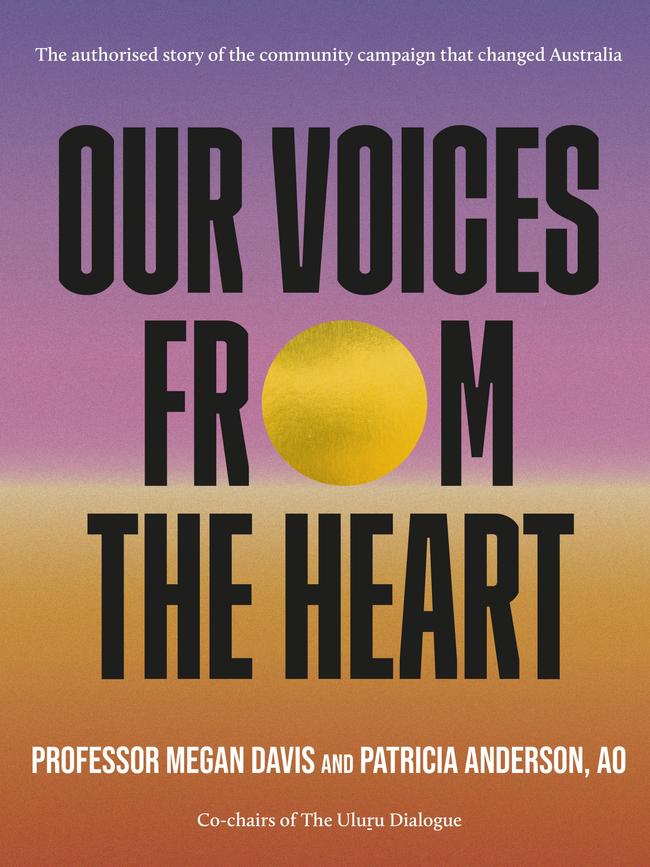
“Whereas in 1967 it was at an all-time high. Today, we have a completely reversed situation. We have the same distrust in institutions. That’s why we issued the Uluru Statement from the Heart to the Australian people.” It is, they say, a “call to action” for all Australians made in a spirit of peace and with the hand of friendship. The First Australians have asked all Australians, in a profound gesture of goodwill and understanding, to walk together in a journey of reconciliation.
Anderson and Davis remain optimistic about a referendum succeeding while acknowledging they still have work to do. They concede the Yes campaign does need to regroup and refocus its efforts. Yet, in the end, they are confident that once everyday Australians read the Uluru Statement, and ignore the political misinformation, that a majority will vote in the affirmative.
“It is a reform that allows Australians to exercise their own agency to change the Constitution, which is the text that contains really important values and principles that all Australians subscribe to,” Davis says of the referendum.
“You are going to get better quality laws and better quality policies, and better outcomes, if you actually include First Nations peoples in those decisions that are made.
“And most Aussies understand that it is a pretty fair thing to do.”
For Anderson, who recalls segregation and racial discrimination being “the formative experience” of her life, and who has worked with government and non-government organisations and written landmark reports to improve the lives of Indigenous Australians, much is at stake. She says those who plan to vote No are voting for nothing to change.
“When you go into that polling booth, it is just you and your conscience and you have to make the decision,” Anderson says in a message to all Australians. “You have to take responsibility for how you vote.
“There is a real opportunity for Australia to look at itself and assess who we are and make a judgment call on what kind of a nation we want to live in. We have to reimagine what we could and should be. We have to reimagine something different, something better, something that’s best for us all, as Australians.”
Megan Davis and Patricia Anderson are co-authors of Our Voices From the Heart, published by HarperCollins on August 30.


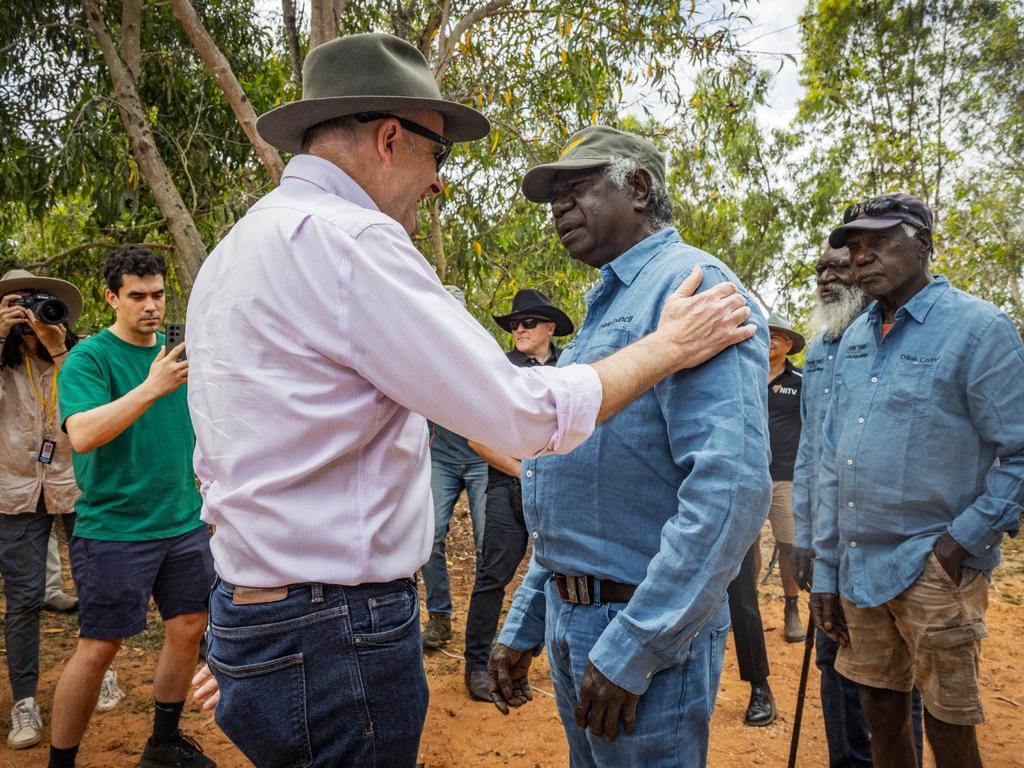
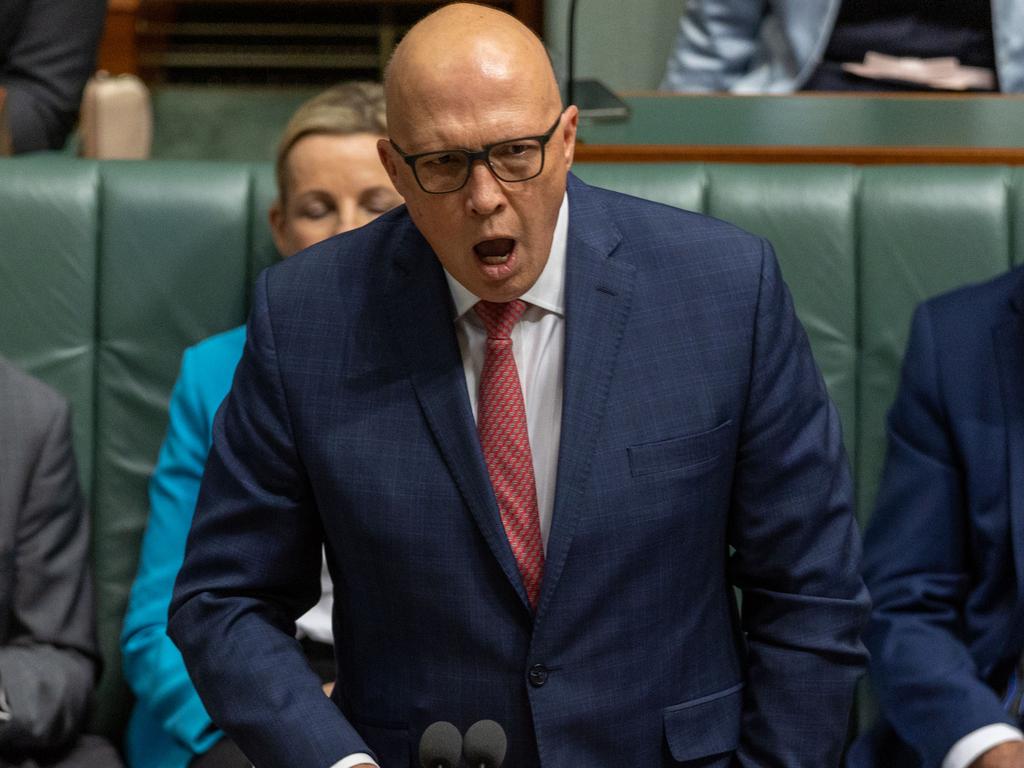
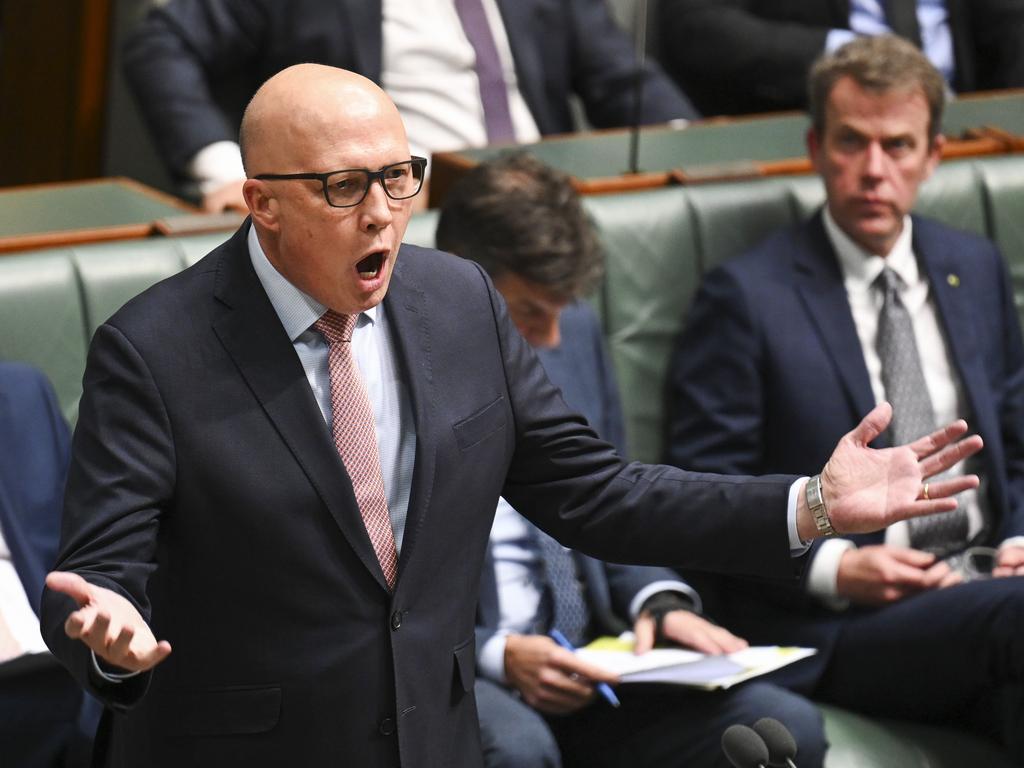
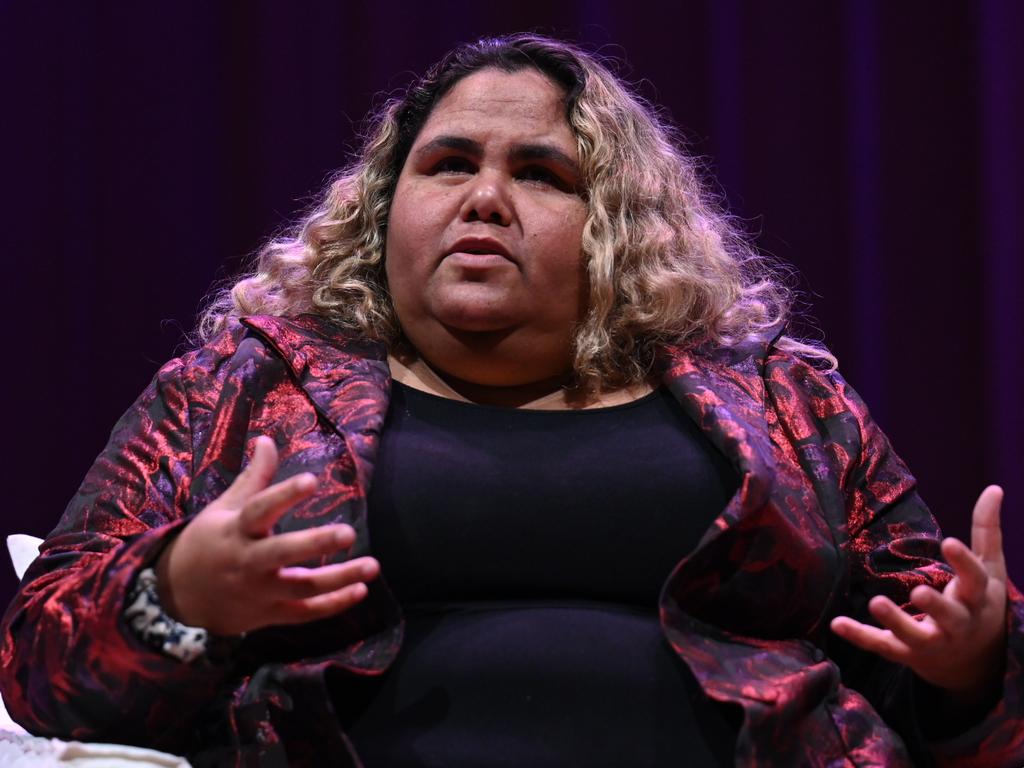
Pat Anderson and Megan Davis are from different generations, born and raised in different parts of Australia, with different work and life experiences, yet they have become allies and collaborators in making the case for constitutional recognition for Indigenous Australians with a voice to parliament. They also have become close friends.